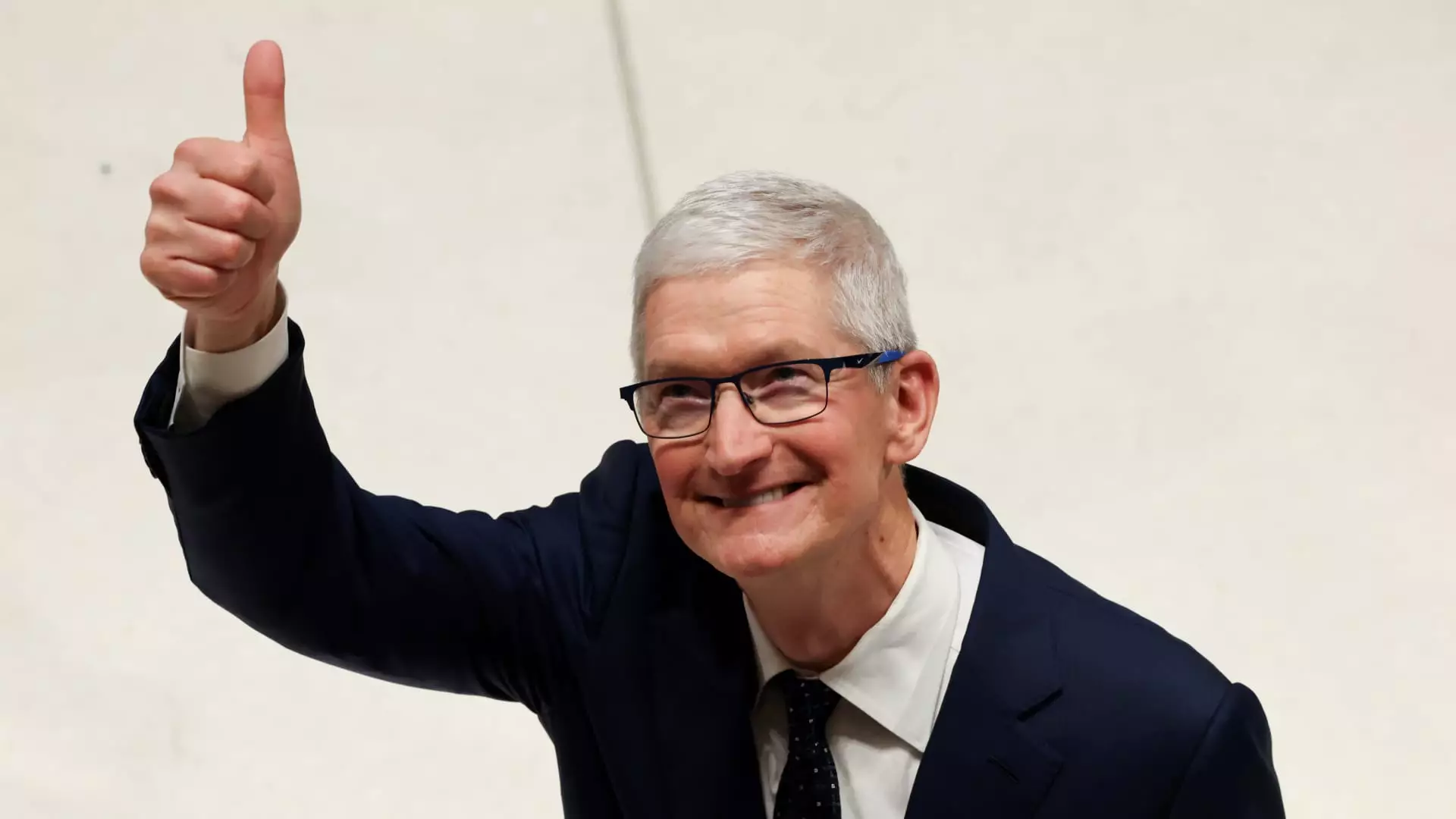In a landmark ruling that could reshape the landscape of digital privacy, Apple boldly defied a directive from the U.K. government that would have compelled the tech giant to construct a “backdoor” for accessing iPhone users’ encrypted data. The Investigatory Powers Tribunal — a body meant to scrutinize the actions of governmental agencies — made the audacious decision to dismiss the government’s plea for secrecy in the ongoing legal tussle. This sets a dangerous precedent, illuminating the often fraught balance between privacy rights and national security imperatives.
It’s essential to recognize that encryption serves as a formidable shield against unauthorized access to personal data, essential in an era marked by incessant threats ranging from phishing scams to state-sponsored cyber espionage. By succumbing to governmental pressure to compromise encryption methods, we risk eroding the very security that citizens expect from their digital communication platforms. The judges, in their discerning ruling, emphasized that permitting the hearing to take place in total secrecy would obliterate the principle of open justice — a bedrock of democratic governance.
The Erosion of Citizens’ Privacy Rights
Interestingly, the U.K. government argues that backdoor access is necessary to combat crime. While their intentions may stem from a sincere desire to protect citizens, such policies invariably lead to a perilous slippery slope. With every government that insists on dismantling encryption, we are one step closer to a reality where privacy becomes a privilege — one reserved only for those with the means to secure it independently. The tension between escaping criminality and safeguarding citizens’ rights to privacy is increasingly palpable. The government’s view poses a fundamental ethical dilemma: should we sacrifice individual freedoms for a perceived collective safety?
Apple’s response has been a reflection of its corporate ethos that prioritizes user privacy. Apple CEO Tim Cook has consistently championed robust security protocols, rejecting the notion of developing backdoors that would invite both governmental and malicious actors to exploit user vulnerabilities. In a bold declaration, Apple asserted that it “has never built a backdoor or master key to any of our products and services, and we never will.” Such statements ring hollow for tech enthusiasts and privacy advocates alike if we do not rally to project our rights unequivocally.
The Global Context: A Troubling Trend
The tussle between modern technology firms and governments over data privacy is not isolated to the U.K. Similar anxieties plague the United States and the European Union, where authorities express frustration over the robustness of end-to-end encryption. This rising global concern raises questions about the adequacy of existing legislation designed to protect citizens’ rights in an increasingly digital world.
The Investigatory Powers Act of 2016 has ignited fierce debates surrounding governmental overreach and whether laws intended to keep the public safe are instead infringing on civil liberties. Public outrage should not merely be a response to these legislative maneuvers; rather, it should serve as a rallying cry for reform that safeguards our privacy without undermining national security.
The implications of this ruling should not be underestimated. If Apple and other companies are forced to yield their encryption protocols, we could witness a substantial uptick in data breaches and personal account compromises, as cybercriminals find fresh avenues to exploit weakened security provisions.
The Turning Point for Consumers
Consumers must grapple with the likelihood of waning digital privacy, particularly if technologists are forced to integrate backdoors into their systems. In such a scenario, what guarantee do we have that our most sensitive information will remain protected? The rise of digital surveillance, whether justified or otherwise, opens the floodgates to unethical practices — including the potential misuse of data by government officials and rogue agents.
The stakes are eternally higher in the digital realm, where the divide between existential threats and the sanctity of individual privacy is disturbingly thin. It is imperative for consumers to embrace a posture of accountability, pressuring both corporations and legislators to fortify their commitments to safeguarding personal freedoms.
Ultimately, the significant ruling serves as a clarion call for advocacy. As digital consumers, we must demand a framework that champions our right to privacy while still addressing legitimate security concerns. In a world fraught with uncertainty, data protection does not have to be a zero-sum game, but it requires vigilance, engagement, and advocacy for all who seek to navigate this complex digital landscape.

